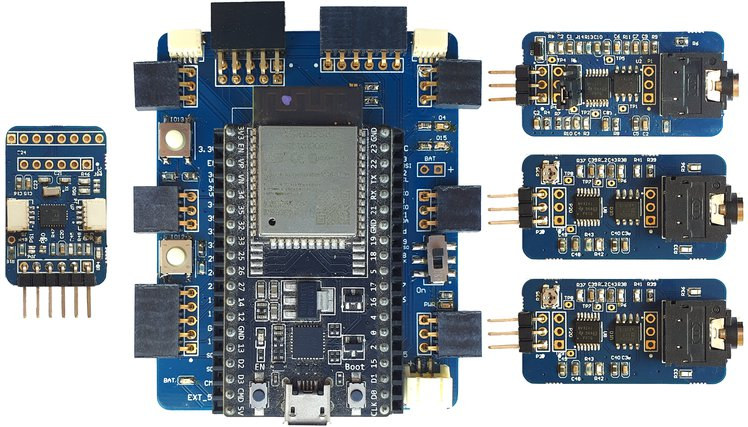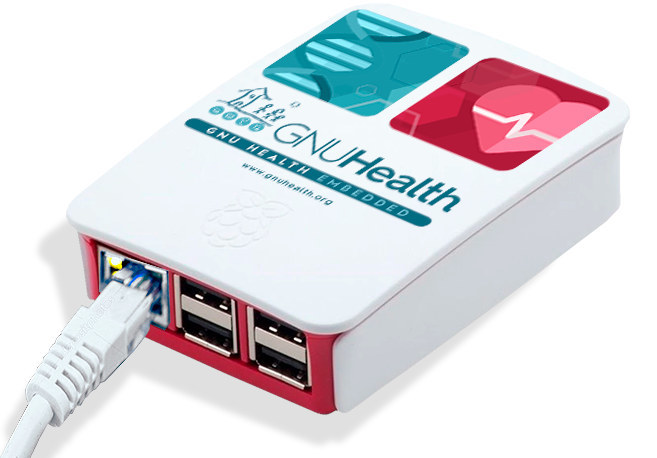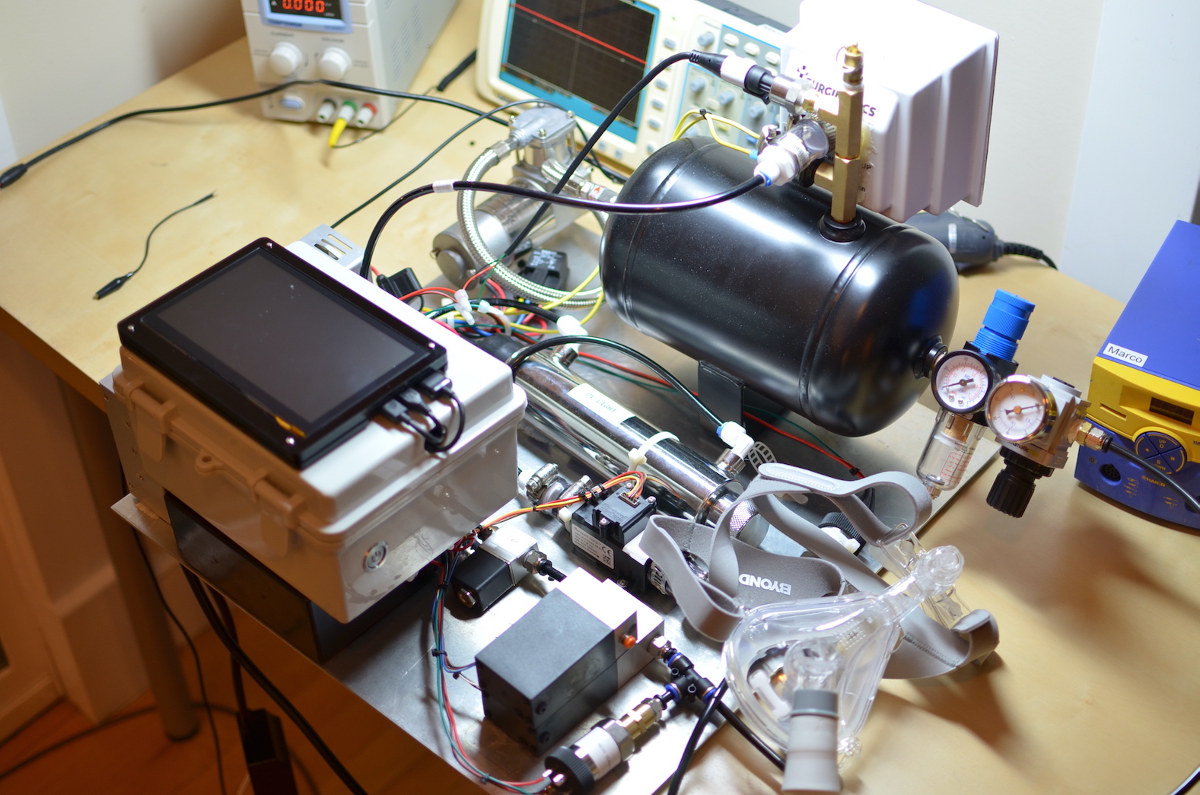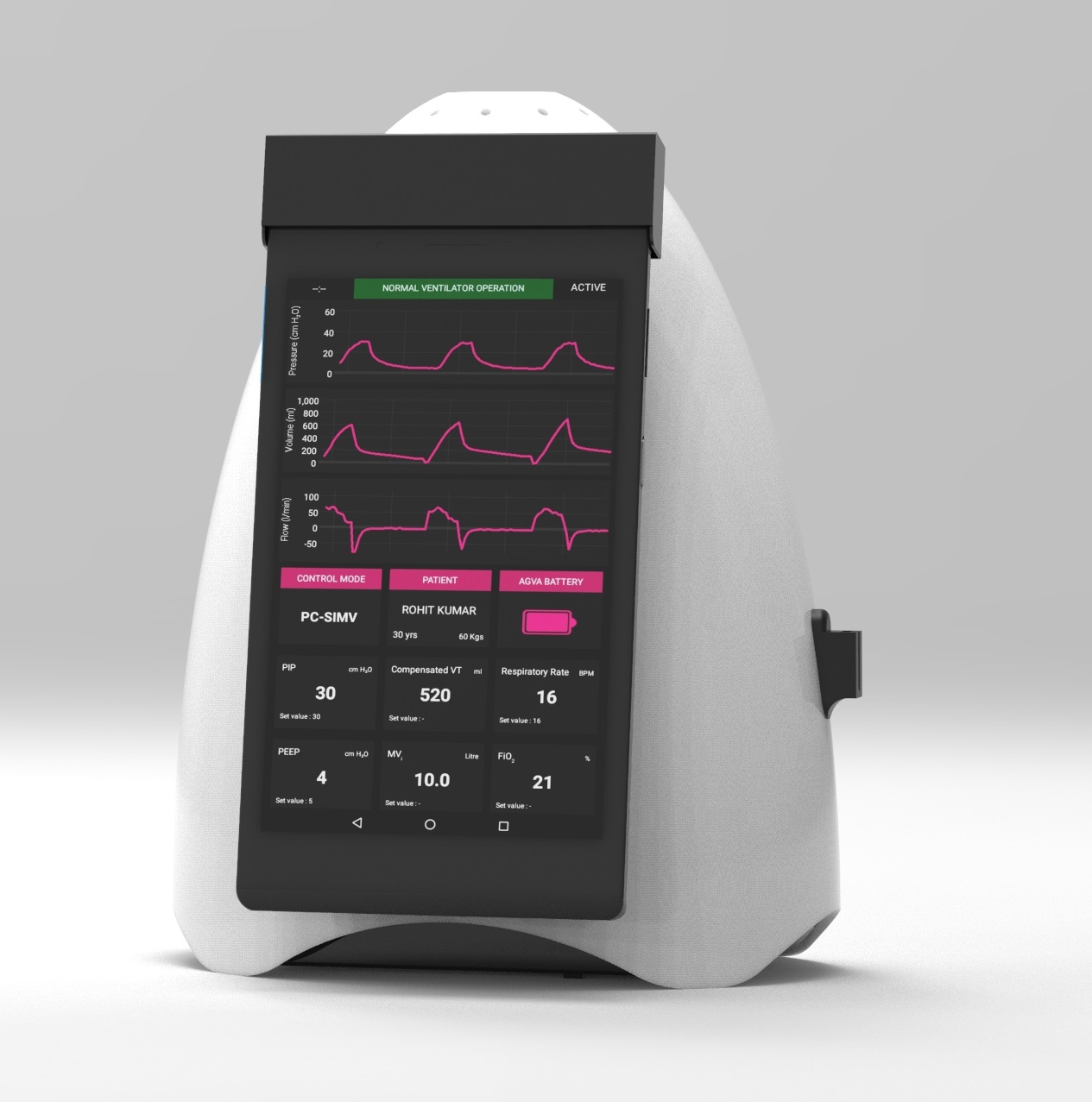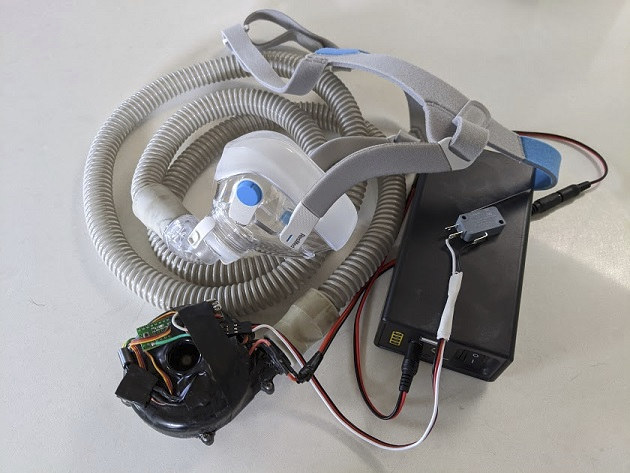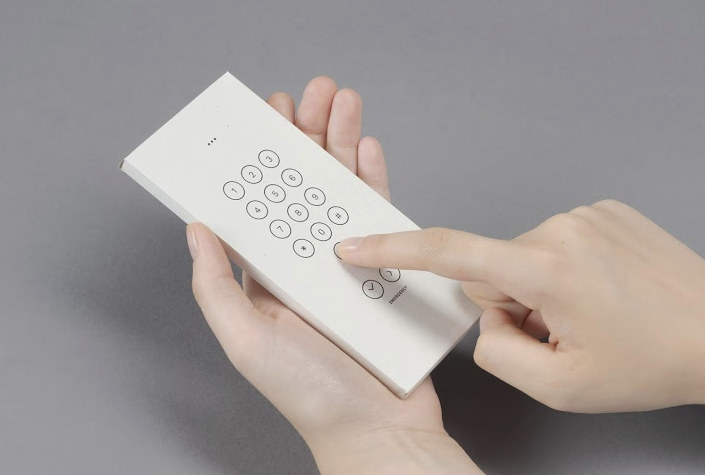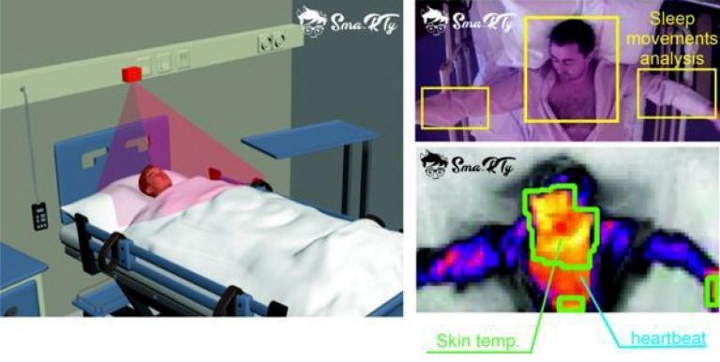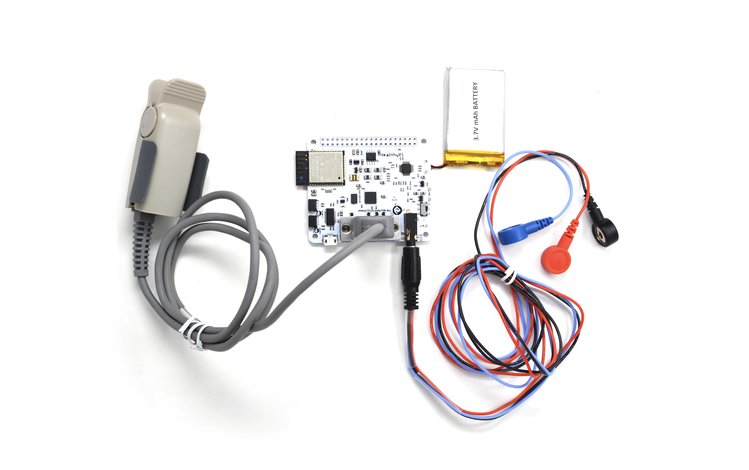Over the year, The maker community has designed several platforms to monitor vital signs with boards like Healthy Pi v4 or HeartyPatch both of which are powered by an ESP32 WiFi & Bluetooth wireless SoC. WallySci has designed another all-in-one wireless bio-sensing platform, called E3K, that also happens to be powered by Espressif Systems ESP32 chip, and can be connected to an electromyography (EMG) sensor to capture muscle movements, an electrocardiography (ECG) sensor to measure heart activity, and/or an electroencephalography (EEG) sensor to capture brain activity. The board also has an extra connector to connect a 9-axis IMU to capture motion. E3K main board which the company refers to as “Data Communication and Processing Unit” (DCPU) comes with the following specifications: Supported wireless board – ESP32-DevKitC with ESP32-D0WD-V3 dual-core 32-bit LX6 microprocessor, up to 240 MHz, Integrated 520 KB SRAM, 16 MByte SPI flash. 2.4 GHz WiFI 4, and Bluetooth […]
GNU Health Embedded Open Source Health Platform Works on Raspberry Pi 3/4, and soon Olimex SBC’s
GNU Health (GH) is a free and open-source Health and Hospital Information System (HIS) that can manage the internal processes of a health institution, such as financial management, electronic medical records (EMR), stock & pharmacies or laboratories (LIMS). It is already used in various hospitals, health centers, and medical research facilities in various countries, most developing countries, across the world. The program would normally be installed on x86 servers running Linux or FreeBSD, but there’s also a version for Raspberry Pi 3 and 4 based on openSUSE called GNU Health Embedded, and work is being done to port the solution to Olimex OlinuXino SBC’s. Contrary to what the photo above implies, GNU Solidario does not sell the hardware pre-loaded with GNU Health Embedded, but you can download it for free from their servers, and if you want to support the project you could always make a donation. As I understand […]
Raspberry Pi powered Ventilators and 80+ Open Source Ventilators Listed & Ranked
With the (potential) shortage of ventilators due to COVID-19 pandemic, people have been working together to create cheaper and/or open-source ventilators, and we previously covered a smartphone-powered ventilator, as well as an open-source Arduino ventilator. It should come as no surprise some companies have started to make ventilators powered by Raspberry Pi boards. Raspberry Pi Zero Production Ramped up for Ventilators Tom’s Hardware reports the Raspberry Pi Foundation is specifically ramping up production of the $5 Raspberry Pi Zero because manufacturers are indeed integrating the tiny SBC into ventilators. Eben Upton, CEO and Founder of Raspberry Pi Foundation/Trading, explains: One of the main challenges with rapidly scaling manufacture of products like this is that you may be able to surge production of the air-handling elements, but you still need to provide the control element: often the components you need are on 20-week lead times and (hopefully) we’ll be out of […]
AgVa Phone Ventilator Connects to a Smartphone to Fight COVID-19
With the world at his knees, fighting the current coronavirus pandemic, which has impacted millions of lives around the world psychologically, economically, and physically. Engineers, scientists, politicians around the world are looking for ways to assist in stopping the virus spread, helping the critically ill people, and help restore society to the way it was before. One major highlight during this COVID-19 crisis is the lack of enough ventilators for patients, a piece of critical equipment that greatly affects the breathing of critically ill patients. There are not enough ventilators available in hospitals right now for all of the potential patients who will be struck by the virus, so it is clear we need more ventilators. Makers are joining the call to service with their existing maker tools, and an example is the attempt to make a low-cost, open-source Arduino ventilator device. Another solution is the AgVa phone ventilator produced by […]
An Arduino based Open Source Ventilator to Fight against COVID-19?
COVID-19 has disrupted most people lives well beyond the health crisis, with an economic fallout on-going that may lead to a 24% GDP contraction in the US and up to 12% worldwide in Q2 2020, and I assume the consequences may span over several years, so we should do everything to mitigate any effects from the disease. Right now, the urgent part is to handle the health crisis, and there’s a shortage – or soon will be – of medical supplies such as ventilators for people in critical conditions, and if hospitals become full they’ll start refusing admissions of some people even in critical conditions, as it happened in Wuhan, letting people die at home. So there are various initiatives and projects to develop open-source ventilators. First, Innovation Management reports Ennomotive has launched a non-profit online competition for the ideation of low-cost, easy-to-build solutions with the goal of speeding up […]
Google Envelope Aims to Reduce your Smartphone Addiction
Smartphones are useful tools, but they can also be addictive as people may start checking the phone each time they receive a notification, visit their Facebook page to check how many likes they got, or just want to check their emails a bit too frequently. Google has been working on addressing the issue with the Digital Wellbeing app launched as part of Android 9 aims to help you take some time away from your phone. The company has now launched a new Digital Wellbeing experiment with Google Envelope. Those are actual paper envelopes housing your phone in order to convert it either in a phone that can only make or receive phone calls, or camera with only the ability to take photos or shot videos. There’s also an accompanying app that will detect the taps on the button. You’ll need to start the app first, then slide your phone into […]
AuverCare is a Predictive AI 24/7 Monitor for Patients and Elderly
Information on the Internet for Monitoring Patients and Elderly If you are in the healthcare field or caring for an elderly or disabled person, you know all about trying to keep them safe. The internet is crowded with camera and audio monitors, wearable fall alert alarms, and the emergency services connected panic button. All these devices have one problem, they only work after there is a problem. What is Predictive AI? There has been a great deal of chatter since the 2016 announcement of a future predicting AI platform. The article reported on this platform was Predicting the Future – especially use cases such as falls by the elderly. With the advances in the field of AI and object recognition and behavior that is based on data gathered from a variety of sensors, it is not really a stretch to see a predictive healthcare monitor come onto the scene. Predictive […]
HealthyPi v4 Wearable WiFi Vital Signs Monitor Follows Raspberry Pi HAT Form Factor
HealthyPi v4 Campaign Starts ProtoCentral has started a Crowd Supply campaign for the HealthyPi v4, its latest vital signs monitoring dev kit. The HealthyPi v4 is wearable, wireless, and can be mounted on a Raspberry Pi. The units are all open source and stand-alone made for end-users, students as well as researchers and developers. An Improvement on HealthyPi v3 The recent increase in health-related tech has fueled ProtoCentral’s desire to bring its HealthyPi v3 up to current usability and development standards. The retail versions of the HealthyPi v4 are made specifically to work in conjunction with the Android OS for ease of use and mobility. Also, the Raspberry Pi HAT form factor is also supported in this version of the device. Articles On Health-Related Development The articles that have touched on health-related issues and topics from our archives, as well as very recently include HEGduino a neurofeedback monitor and […]


